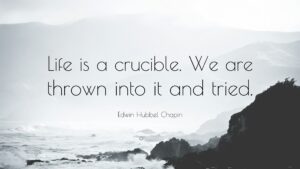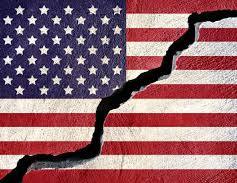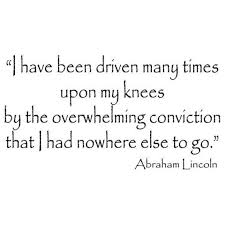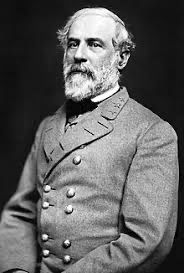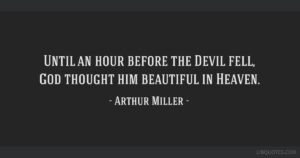TO ENJOY THE MUSIC IN TODAY’S POST, PLEASE CLICK THE LINK ABOVE IN YOUR EMAIL, OR click here.
Plato describes humans as coming into the world “naked, unshod, unbedded, and unarmed,” needing the gifts of fire and practical wisdom to compensate.
That pretty much sums up my growing up experience,
- naked
- unshod
- unbedded
- unarmed
electing to being burned to a crisp by the fires of life in order find the wisdom I needed become a human being.
I suspect I’m not the only one.
Life tests us all in ways we could never have imagined nor hardly wished.
Always leaving us with the same question:
Will we be open to a world —
- we don’t understand
- larger than any one of us
- including people not like us
Whenever I say NO I make trouble for myself.
But when a nation says No — the outcome can be catastrophic.
Remember the aftermath of the election of 1860 when the country was driven to its knees.
In the book, The Demon of Unrest: A Saga of Hubris, Heartbreak, and Heroism at the Dawn of the Civil War, Erik Larson recounts the trouble Robert E. Lee had in meeting his moment.
At the outset of the Civil War he was called on to declare whether he’d be loyal to the nation as a whole or to his state of Virginia.
It was his crucible hour.
He was, at the time, a colonel in the United States Army, whom General Winifred Scott, the Commanding General, considered to be the his finest field officer.
Lee was fifty-four, a storied veteran of the Mexican War, former superintendent of West Point, and the man who had quashed John Brown’s insurrection.
Lincoln offered Lee command of all Union forces.
That same day Lee learned his state of Virginia had seceded from the Union. For Lee this was a wrenching moment. It was his crucible hour. He considered slavery a “moral and political evil” and looked upon secession as “anarchy.”
And yet…
Writing to Francis Blair, he said, “If I owned the four million slaves in the South I would sacrifice them all to the Union; but how can I draw my sword upon Virginia, my native state?”
He needed time.
He spent two days in personal torment considering the offer before formally notifying General Scott in a letter on April 20 that he had decided to resign from the Army.
Rather than stand with his country he would stand with his state.
He would have done it “at once,” he told Scott, “but for the struggle it has cost me to separate myself from a service to which I have devoted all the best years of my life and all the ability I possessed.” To which Scott replied,
“You have made the greatest mistake of your life.”
His chose his home in Virginia rather than his home in America:
”Wherever the blame may be, the fact is, that we are in the midst of a fratricidal war. I must side either with or against my section of country. I cannot raise my hand against my birthplace, my home, my children.”
Rather than going BIG — Lee went small.
And he did so KNOWING the outcome.
“Whatever may be the result of the contest, I foresee that the country will have to pass through a terrible ordeal, a necessary expiation, perhaps, of our national sins.”
Soon his state of Virginia seceded and Lee, within days, proffered his services to the Confederacy.
The “expiation” Lee feared, what Mary Lincoln called “a hideous nightmare,” would come to pass,
750,000 dead Americans.
We can only be reminded there is a cost to be paid when a people choose:
- to look backward and not forward
- self-interests not common interests
When all is said and done Robert E. Lee is a tragic figure in our nation’s history, not because he wasn’t a great man —
— but because he didn’t meet his moment with greatness.
We, too, are being asked the question of whether we stand with the future of our republic and the democracy it represents — or not.
My prayer is that we place our trust in a world larger than any one of us, encompassing dreams that are of the many and not the few, including people not like me.
That we go BIG, not small.
Just a thought…
Pat
Song of the Liberty Bell, composed by Mark O’Connor (pictured in the video) performed by Mark O’Connor, violin; Yo-Yo Ma, cello, and the Nashville Symphony — for the Ages.
PLEASE CLICK THE LINK ABOVE IN YOUR EMAIL, OR click here.

